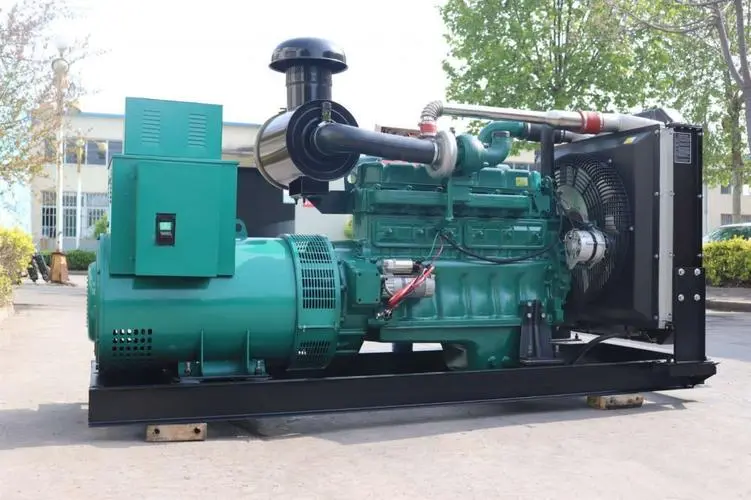Introduction
Diesel generators are crucial assets in regions with hot climates where power outages are common due to various factors such as extreme weather conditions, inadequate infrastructure, and high energy demand. In these areas, a reliable source of backup power is essential to ensure continuous operation of critical facilities, businesses, and households. Diesel generators are known for their robustness, reliability, and ability to provide backup power for extended periods, making them a popular choice in hot climates. 400kW generator safety tips will explore the efficiency, maintenance, and best practices for diesel generators operating in hot climates.
Efficiency of Diesel Generators in Hot Climates
The efficiency of a diesel generator is crucial in hot climates where high temperatures can affect its performance. Diesel generators work by converting diesel fuel into mechanical energy through a combustion process. The efficiency of this conversion process is influenced by several factors, including the ambient temperature, engine design, fuel quality, and maintenance practices.
In hot climates, the ambient temperature can have a significant impact on the efficiency of a diesel generator. High temperatures can cause the engine to operate at higher temperatures, leading to increased wear and tear on components and reduced efficiency. To mitigate this, diesel generators designed for hot climates are equipped with cooling systems that can handle higher ambient temperatures and maintain optimal operating conditions.

The design of the engine also plays a crucial role in the efficiency of a diesel generator in hot climates. Engines with advanced combustion systems, turbocharging, and electronic controls are more efficient and can deliver higher power output with lower fuel consumption. It is essential to choose a diesel generator with a modern engine design that is optimized for hot climates to ensure optimal performance and efficiency.
Fuel quality is another critical factor that can affect the efficiency of a diesel generator in hot climates. Poor-quality fuel can lead to incomplete combustion, increased emissions, and reduced engine performance. It is essential to use high-quality diesel fuel that meets the specifications recommended by the generator manufacturer to ensure optimal efficiency and reliability.
Maintenance Practices for Diesel Generators in Hot Climates
Proper maintenance is essential to ensure the reliable operation of diesel generators in hot climates. High temperatures, dust, and humidity can accelerate wear and tear on the generator components, leading to breakdowns and reduced performance. Regular maintenance practices can help prevent costly repairs, extend the lifespan of the generator, and ensure uninterrupted power supply.
One of the most crucial maintenance practices for diesel generators in hot climates is regular inspection and cleaning of the cooling system. The cooling system is essential for dissipating heat generated during the combustion process and maintaining the optimal operating temperature of the engine. In hot climates, dust and debris can accumulate on the cooling fins, reducing the efficiency of the cooling system. Regular cleaning and inspection of the cooling system can help prevent overheating and ensure optimal performance.
Regular oil and filter changes are also essential maintenance practices for diesel generators in hot climates. High temperatures can accelerate the breakdown of engine oil and increase the accumulation of contaminants in the oil and filters. Regular oil and filter changes can help maintain the lubrication properties of the oil, prevent engine wear, and ensure the smooth operation of the generator.
Fuel quality is crucial for the efficient operation of diesel generators in hot climates. Contaminated or degraded fuel can lead to injector clogging, fuel system corrosion, and reduced engine performance. It is essential to monitor the quality of the fuel regularly and use fuel additives or stabilizers to prevent fuel degradation. Additionally, fuel tanks should be cleaned and inspected periodically to remove water and contaminants that can affect the performance of the generator.
Best Practices for Diesel Generators in Hot Climates
In addition to efficient operation and proper maintenance, there are several best practices that can help maximize the performance and reliability of diesel generators in hot climates. These best practices include:
1. Proper Sizing: It is essential to choose a diesel generator that is properly sized for the specific power requirements of the facility or application. Undersized generators can lead to overloading and reduced efficiency, while oversized generators can result in higher fuel consumption and increased maintenance costs.
2. Remote Monitoring: Remote monitoring systems can help track the performance and status of the diesel generator in real-time, allowing for proactive maintenance and troubleshooting. Remote monitoring can help identify potential issues before they escalate and ensure uninterrupted power supply.
3. Regular Load Testing: Regular load testing is essential to ensure that the diesel generator can handle the full load during a power outage. Load testing helps identify any issues with the generator and its components and ensures that it is ready to provide backup power when needed.
4. Emergency Preparedness: It is essential to have a comprehensive emergency preparedness plan in place to ensure the reliable operation of the diesel generator during a power outage or emergency situation. The plan should include procedures for fuel management, maintenance, and troubleshooting to minimize downtime and ensure continuous power supply.
Conclusion
Diesel generators are indispensable assets in hot climates where power outages are common due to various factors such as extreme weather conditions, inadequate infrastructure, and high energy demand. To ensure the efficient operation and reliability of diesel generators in hot climates, proper maintenance practices and best practices are essential. By following these guidelines and investing in modern, efficient diesel generators designed for hot climates, businesses, facilities, and households can ensure uninterrupted power supply and mitigate the impact of power outages. Diesel generators continue to be a reliable and cost-effective solution for backup power in hot climates, providing peace of mind and security in challenging environments.
